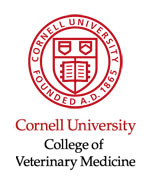Wildlife-Friendly Beef:
Working towards a Win-Win Solution for Livestock Agriculture
&
Wildlife Conservation in Ngamiland
A DVS-hosted Workshop, in collaboration with AHEAD
Maun, Botswana, November 8-9, 2017
Download Workshop Proceedings
(PDF)

In November 2017, Botswana’s Department of Veterinary Services (DVS), in collaboration with Cornell University’s AHEAD (Animal & Human Health for the Environment And Development) Programme, hosted the above-mentioned workshop. Additional support was provided by The Rockefeller Foundation and the Atkinson Center for a Sustainable Future.
Close to 80 participants attended the forum, including technical experts from both the wildlife and livestock sectors, farmers and farmers association representatives, and stakeholders from the private sector and civil society organisations based in Botswana and further afield. The aim of this inception workshop was to begin to evaluate what would be needed to implement commodity-based trade (CBT) of beef – a value chain-focused approach for producing beef that can be sold in regional and international markets. CBT, an approach largely compatible with wildlife conservation, offers real prospects for improved market access for small-scale cattle producers living in FMD-endemic zones such as Ngamiland, as well as a genuine opportunity to alleviate long-standing tensions at the livestock / wildlife interface.
Basis for the meeting:
In Botswana, wildlife conservation and livestock production are often in conflict due to the prevalence of animal diseases – especially foot and mouth disease (FMD) – that can be transmitted between wildlife and livestock. This situation restricts market access and constrains the success of livestock owners in Ngamiland who share the land with wildlife. In addition, attempts to meet international standards related to "freedom from disease" under currently applied policies for addressing FMD have had significant negative repercussions for free-ranging wildlife, largely related to disease control fencing.
Fortunately, new beef value chain-based approaches, known as commodity-based trade, have now been developed. Furthermore, in 2015 the international sanitary trade standards adopted by the OIE (World Organisation for Animal Health) were amended to remove certain restrictions on the trading of beef derived from areas where wildlife maintains FMD viruses. All of this provides a timely opportunity to rethink Ngamiland’s approach to FMD management.
|











